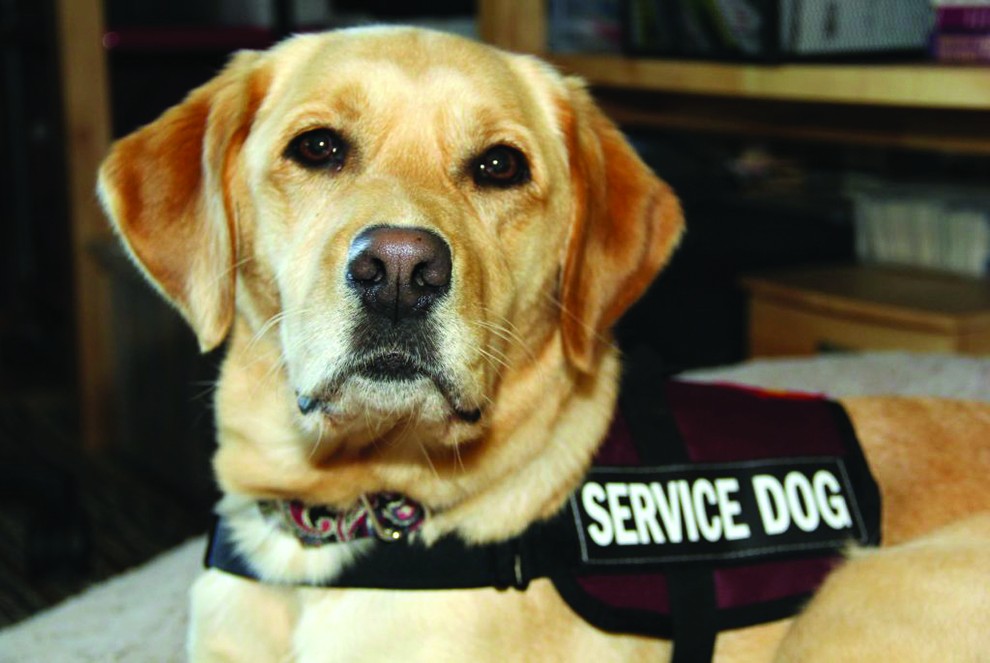Service dogs can go anywhere

MONTE VISTA— Service dog Spencer and her owner Emily (identities changed for protection) are tired of having to growl that they are legally allowed to be together in all locations. They have been denied entries from businesses such as some restaurants, retail stores and a local hospital. They would like to remind business owners and other organizations that they are protected under the Americans with Disabilities Act (ADA).
Recently, Spencer and Emily ran into a nurse who doesn’t seem to understand that. Emily needed a medical examination at the hospital. “I checked in, waited and everything was fine. When it was finally time to go into the examination room the nurse did not want to permit Spencer entry. I told the nurse that I go everywhere with my service dog and that was the ADA law. The nurse told me that she was the law in the hospital and that it was her policy,” she said.
Under ADA, the story told by Emily is unacceptable. The law in reference to where service dogs are permitted provided by the U.S. Department of Justice reads as follows: “Under the ADA, state and local governments, businesses and nonprofit organizations that serve the public generally must allow service animals to accompany people with disabilities in all areas of the facility where the public is normally allowed to go. For example, in a hospital it would be inappropriate to exclude a service animal from areas such as patient rooms, clinics, cafeterias, or examination rooms. However, it may be appropriate to exclude a service animal from operating rooms or burn units where the animal’s presence may compromise a sterile environment.”
Another situation Emily ran into is a restaurant stating that the dog looked scary. Emily and her dog were not allowed access into areas of the restaurant they desired to sit. The same law also states that allergies or fear of dogs is not a valid reason for denying access or refusing service to people using service animals. It further dictates that places that prepare food cannot deny entry in public areas even under local prohibitions, and that patrons with service animals cannot be treated less desirable than other customers or be isolated.
Some business owners may also wonder about whether a service dog is truly one due to some people abusing this or claiming their pets are service dogs. They can inquire but only very limitedly. The law stipulates that staff may ask two questions. Those questions are whether the animal is required due to a disability and what work or task the dog has been trained to perform. That is as far as it can go. Under ADA, questions asking for specific disability, documentation, identification cards or asking for demonstrations is prohibited.
Emotional Support Animals (ESA) are another subject that is sometimes discussed and misunderstood. These animals are not trained to perform a duty. They are usually owned by people with depression and anxiety. Their duty is to offer emotional support and companionship to their owners who may be going through a difficult time. They are not required to be allowed in all public places. There is a distinction between them and trained and certified service dogs. It is up to individual business owners if they would like to allow this type of animal or not and are not under any obligation. However, Emotional Support Animals and their owners are offered some protections too. ESAs are legally allowed to be in housing that prohibits animals under the Fair Housing Act with proper documentation.
Emily feels that many businesses and organizations throughout the San Luis Valley do not respect or understand the service dog laws. She asks that owners and others in leadership or business start caring about being accommodating to people with true disabilities who require the help of a service animal for their health. The animal may the only thing standing between its owner and death.



